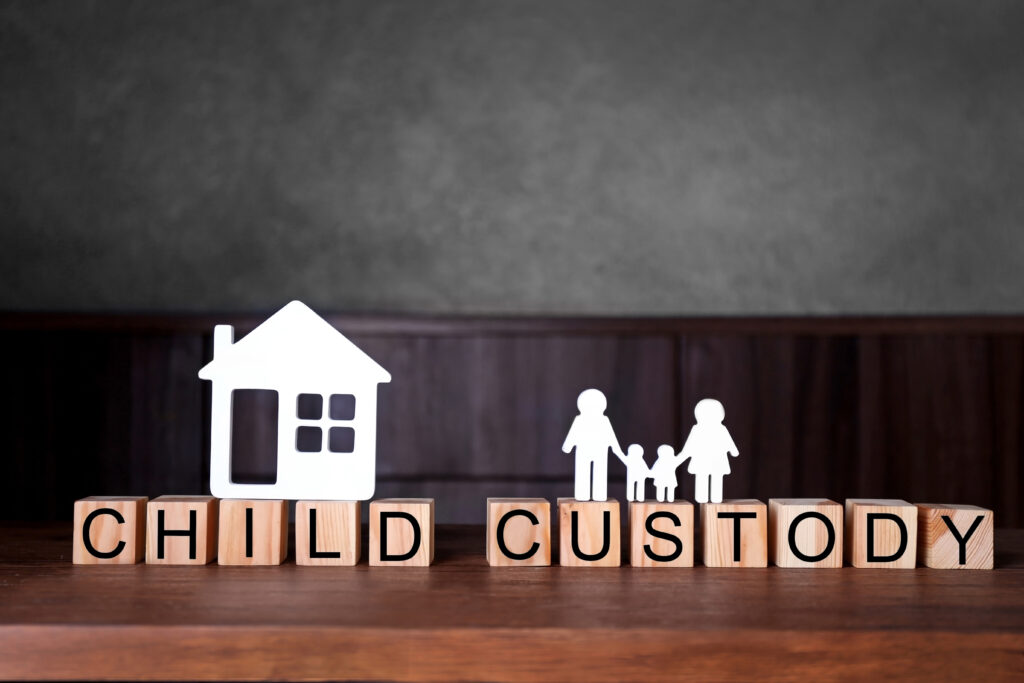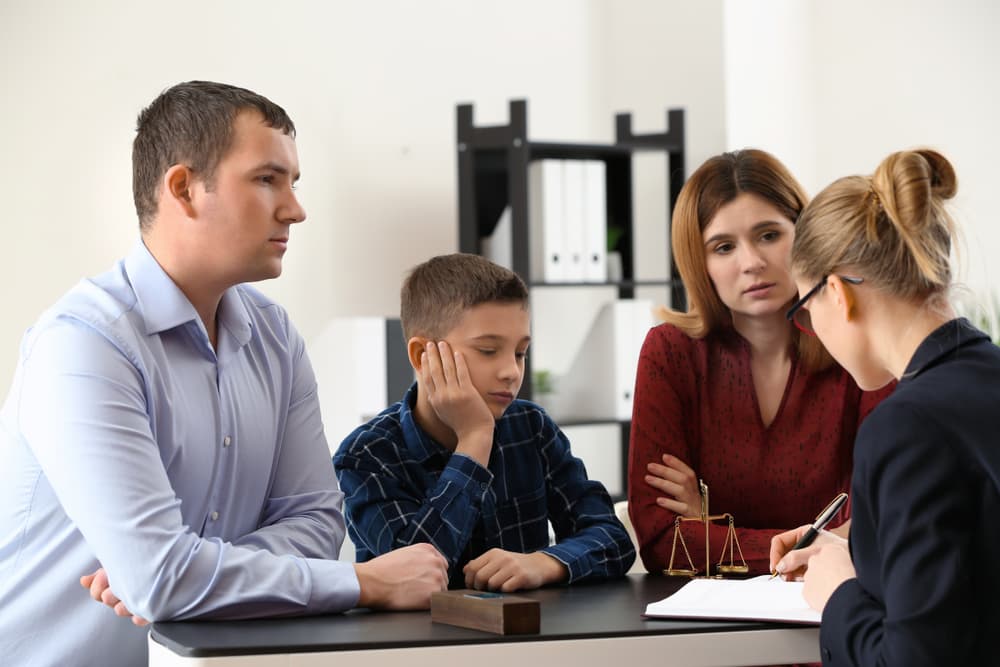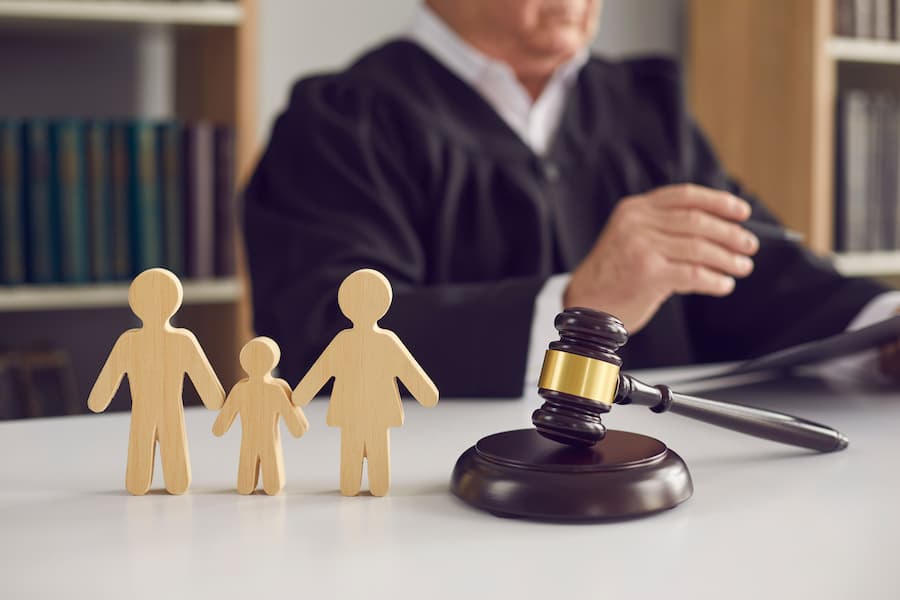When parents get divorced or separated, one of the most important decisions they need to make is about child custody. Child custody refers to a parent's legal right and responsibility to care for and make decisions for their child. If the parents can't agree on custody, a judge must decide for them.
The law provides guidelines on how judges determine child custody and what factors they must consider. If you have custody concerns or face a possible battle, never delay in consulting a Myrtle Beach child custody attorney near you.
The Best Interests of the Child
The most important thing that judges look at when deciding child custody is what's best for the child. This is called the "best interests of the child" standard. Judges will consider many factors to determine what living situation and custody arrangement will be healthiest and most beneficial for the child's overall well-being. You want a skilled child custody lawyer presenting your case to the judge.
Factors Judges Consider

There is no longer an automatic preference for a mother to have custody of young children over a father. Instead, here are some of the key things that judges take into account when determining child custody, all of which consider the best interests of the child.
The Child's Age and Needs
Judges consider the child's age and developmental stage when determining custody arrangements. Infants and young children require more frequent care and attention, so judges may lean towards granting more time or even primary custody to the parent who has been the main caregiver.
As children grow older, their needs change. They may benefit from spending more balanced time with both parents to maintain strong relationships. Judges will consider factors like the child's school schedule, extracurricular activities, and social needs. The judge will evaluate which parent consistently best meets the child's special medical, educational, or emotional needs.
The Child's Relationship with Each Parent
The quality of the child's relationship with each parent is a significant factor in custody decisions. Judges aim to foster and maintain healthy parent-child bonds. If a child has a particularly close, nurturing relationship with one parent, the judge may grant that parent more custody time.
On the other hand, if a child has a strained or distant relationship with a parent, the judge may limit that parent's time or require supervised visitation. Judges will consider evidence like the child's interactions with each parent, the parent's involvement in the child's life, and the child's emotional attachment to each parent.
Each Parent's Ability to Care for the Child
Judges must ensure that each parent can meet the child's physical, emotional, and developmental needs. They will evaluate each parent's ability to provide a safe, stable, nurturing environment.
Factors that judges consider include each parent's physical and mental health, work schedule and availability, caregiving skills, and financial stability. If one parent has a demanding job that requires frequent travel or long hours, the judge may award more custody time to the other parent. If a parent has a history of mental illness or substance abuse, the judge may require treatment or limit their custody rights to protect the child's well-being.
The Child's Ties to School and Community
Children thrive on consistency and stability. Judges aim to minimize disruption to a child's daily life and routines when deciding custody arrangements. They will consider the child's current school situation, academic performance, and extracurricular involvement.
If a child excels in their current school and has established close friendships, the judge may hesitate to uproot them. The judge will also examine each parent's ability to maintain the child's community ties, like religious activities, sports teams, or social groups. Proximity to the child's school and community may factor into the custody decision.
Any History of Abuse or Neglect

The child's safety and protection are the highest priority in custody cases. If one parent has a history of child abuse, domestic violence, or substance abuse, the judge will take that very seriously.
Documented evidence of abuse or neglect, such as police reports, medical records, or witness testimony, will heavily influence the custody decision. In cases of severe abuse, the judge may terminate the abusive parent's custody rights entirely. Even if the abuse did not target the child directly, the judge may still restrict custody or mandate supervised visitation to protect the child from potential harm or trauma.
The Co-Parenting Relationship
Judges recognize that children benefit from having strong relationships with both parents. They prefer custody arrangements that allow the child to spend quality time with each parent and maintain close bonds.
The judge will evaluate each parent's willingness and ability to co-parent effectively. This includes the parent's level of communication, cooperation, and flexibility with the other parent.
If one parent has a history of alienating the child from the other parent or interfering with their relationship, the judge may limit their custody time.
On the other hand, if a parent demonstrates a commitment to fostering the child's relationship with the other parent, the judge may view that favorably in the custody decision.
The Child's Preference
As children mature, they develop their opinions and preferences about custody arrangements. In most states, judges will consider the child's wishes once they reach a certain age and maturity level, typically around 12. However, the child's preference is one factor among many, and it won't necessarily determine the outcome.
Judges will assess whether the child's preference stems from sound reasoning, such as a strong bond with one parent or a desire to maintain school and social connections. They'll also consider any evidence of parental influence or manipulation.
Ultimately, the judge will decide based on the child's overall best interests, not just their stated preference.
Each Parent's Living Situation
The environment and circumstances of each parent's home life can significantly impact the custody decision.
Judges will evaluate factors like the safety and appropriateness of each parent's living space. They'll consider whether the child should have a bedroom or need to share with siblings.
The home's proximity to the child's school and other important locations will also be a factor. If one parent plans to relocate or lives far away, the judge may limit their custody time to avoid excessive travel or disruption for the child.
The judge will also assess each parent's ability to provide a stable, nurturing home environment if one parent has a history of frequent moves, unstable relationships, or an unsafe living situation that can negatively impact their custody case.
Types of Custody Arrangements in South Carolina

There are different types of custody arrangements that a judge can order:
Sole Physical Custody
In a sole physical custody arrangement, the child resides primarily with one parent, called the "custodial parent" or "residential parent." The other parent, known as the "non-custodial parent," may or may not have visitation rights.
Visitation frequency and duration can vary depending on the case's specific circumstances and what is in the child's best interests. The non-custodial parent might have the child for weekends, holidays, or extended periods during school breaks.
In some cases, sole physical custody may be necessary if one parent is deemed unfit or cannot provide a safe and stable environment for the child. However, judges generally prefer to grant at least some visitation to the non-custodial parent as long as it's safe and beneficial for the child.
Joint Physical Custody
Joint physical custody, or "shared custody," involves the child splitting their time living with both parents. This arrangement allows the child to have frequent and continuing contact with both parents and maintain meaningful relationships with them. The exact schedule can vary depending on the family's unique circumstances and the child's needs.
Some common joint physical custody schedules include:
- Alternating weeks: The child spends one week with one parent and the next with the other.
- 2-2-3 schedule: The child spends two days with one parent, two days with the other, and three days with the first parent. The schedule then alternates the following week.
- 2-2-5-5 schedule: The child spends two days with each parent and then five days with each parent, alternating each week.
- Weekdays and weekends: One parent has the child on weekdays, while the other has the child on weekends.
The feasibility of joint physical custody depends on the parents' ability to cooperate, their geographical proximity, and the child's school and extracurricular schedules. Maintaining joint physical custody necessitates a high level of communication and flexibility between the parents to consistently meet the child's needs.
Sole Legal Custody
Legal custody refers to the right and responsibility to make major decisions on behalf of the child. These decisions include choices about the child's education, healthcare, religious upbringing, and other significant matters.
Only one parent can make these decisions unilaterally in sole legal custody. The other parent may still have access to information about the child, such as medical records and school progress, but they do not have the legal right to make decisions.
Sole legal custody is less common than joint legal custody, as judges generally believe it's in the child's best interest for both parents to have input on major decisions. However, a court may grant sole legal custody if one parent is unfit to make decisions, has a history of abuse or neglect, or if there is a severe breakdown in communication and cooperation between the parents.
Joint Legal Custody
In a joint legal custody arrangement, both parents share the right and responsibility to make major decisions for the child. This means that the parents must consult with each other and reach a consensus on significant matters affecting the child's welfare.

Joint legal custody promotes the child's relationship with both parents and ensures each parent has a say in important aspects of the child's life. For joint legal custody to work effectively, the parents must be willing to and can communicate respectfully, compromise, and prioritize the child's needs above their conflicts.
If the parents cannot agree on a decision, they may need to seek mediation or return to court for a resolution. In some cases, the court may grant joint legal custody but designate one parent as the primary decision-maker if the parents have a history of high conflict or an inability to co-parent effectively.
Judges often order a combination of physical and legal custody, like joint legal custody, with one parent having primary physical custody. The specifics depend on each family's unique situation.
The Custody Process
Parents must go to court if they can't reach a custody agreement independently or through mediation. Both parents will have a chance to make their custody case. They can present evidence, call witnesses, and argue for their preferred arrangement. Then, the judge will evaluate all the factors and make a binding decision. If a parent believes the judge's ruling is unfair or harmful to the child, they can appeal the decision to a higher court.
Modification of Custody Orders
While a judge's initial custody order provides stability and structure for the child, life circumstances can change over time. As the child grows older or the family situation evolves, the custody arrangement may no longer serve the child's best interests. A parent can petition the court to modify the custody order.
To successfully request a custody modification, the parent seeking the change must demonstrate that there has been a substantial and material change in circumstances since the original order. This means the change must be significant enough to warrant reevaluating the custody arrangement.
If you believe you need to modify an order, have your child custody attorney handle the entire process.
Get Help from a South Carolina Child Custody Lawyer

Child custody is one of family law's most important and sensitive aspects. The decisions made can have a profound impact on a child's life.
If you're going through a divorce or separation and need guidance on custody and visitation, it's wise to consult with an experienced family lawyer. A child custody lawyer can aid you in understanding your rights, exploring your options, and advocating for your child's best interests, whether through negotiation or in court.
Don't navigate this challenging legal process alone. Contact a trusted family lawyer today to discuss your child custody questions and concerns.







